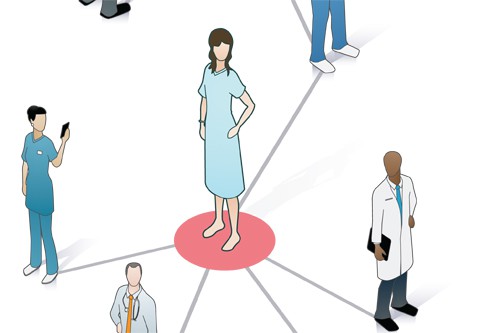
Outside the careful selection and support environment of a clinical trial the startling fact is that most patients will disengage from self-managing their condition and become increasingly non-adherent to their treatment.
Every pharmaceutical executive knows the devastating cost of non-adherence in terms of impaired clinical outcomes, not to mention its subsequent impact on brand revenues.
So it’s crucial to be able to understand the interaction between patients, their treatment and the healthcare system (including the healthcare professionals caring for them). There is an increasing momentum behind using sources such as registries and health population studies to allow us to do this.
They can allow us to understand practical issues around non-adherence and the barriers to effective self-management in order to provide meaningful solutions that help to optimise the value of treatment.
Turning patient-centred data into practical support
RWD can also help us harness the power of the patient voice to reveal often surprising pieces of knowledge that can unlock a powerful collaboration between patient, healthcare professional and treatment. But the deep practical and psychological insights needed to really understand patient adherence, persistence and compliance demand richer qualitative and quantitative insights than traditional real-world data (RWD) can deliver.
It’s well known that patients will avoid taking their medicines for a host of personal reasons. This can include an off-putting taste, a belief that some co-morbidities are more important to treat than others or a lack of understanding that their condition is chronic as opposed to a series of acute episodes (such as in asthma, COPD or IBD). But the real reasons underlying these behaviours only surface in the real world, therefore we need the patient’s voice at the centre of RWD collection. Traditional RWD can set an evidence baseline, but RWD based on the patient experience can show us how to develop solutions and then keep improving them.
Understanding and collecting patient-centred RWD is a complex and specialist skill that is yet to make its way into most patient support programme development. At Engage, our experience of working with partner agencies Harvey Walsh and pH Associates has allowed us to develop fully-rounded and measurable solutions that drive changes in deep psychological beliefs. We also advocate the ongoing collection of RWD from patient engagement programmes as a way to provide even richer insights and allow refinement and evolution of the support offering. This 360-degree approach to RWD has allowed us to identify practical improvements in healthcare delivery systems and to uncover and challenge the patients’ beliefs. Consequently solutions can be developed that drive increased engagement in self-management and so improve patient adherence.
Effective measurement of outcomes
Improvements can only be quantified if robust metrics are built in to a programme, so measuring the changes in beliefs and behaviours that are needed to improve adherence and self-management is key. GPs and other HCPs will only engage with, or endorse, a patient-centred intervention if there’s evidence that it can improve patient outcomes. Similarly, if patients can see their peers are benefiting from a particular programme then they will feel more motivated to engage with it themselves.
But despite this many patient engagement programmes and patient education initiatives are still being designed without effective measurement strategies. It isn’t easy to measure the impact of individual elements of more complex interventions, or override the sense that an RCT is the only essential part of any valid measurement approach, but that doesn’t mean it can’t be done.
In the era of real world data, there are valuable ways to measure programmes’ effectiveness that don’t only rely on the randomised clinical trial to show a positive impact. They still have to be relevant and meaningful to all key stakeholders, of course, but the key to this is agreeing upfront on the right real world metrics and methods with the stakeholders you seek to influence. In fact, ensuring an intervention’s real world credentials are truly valued should be an essential part of its development.





